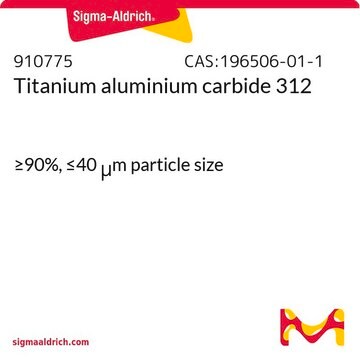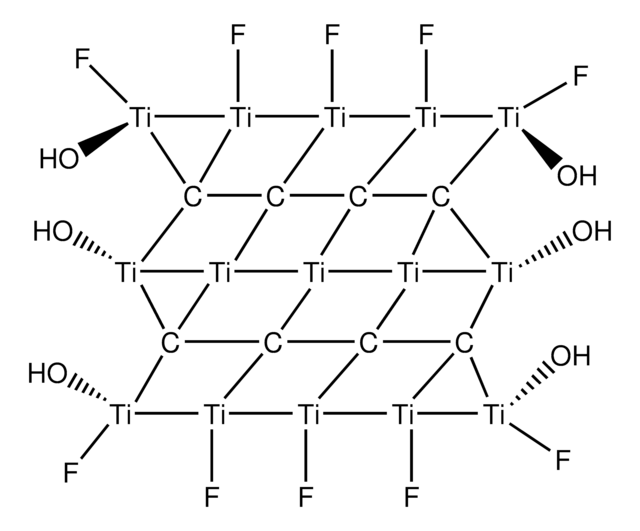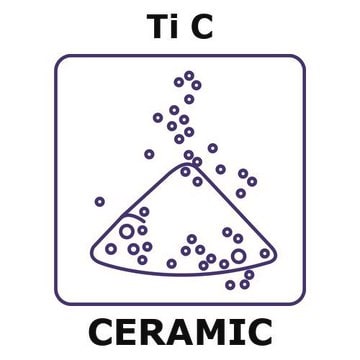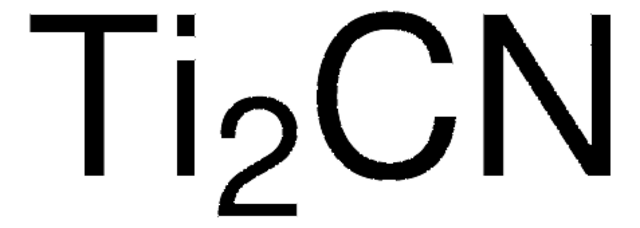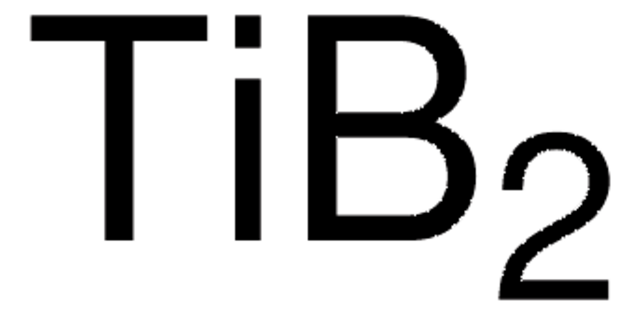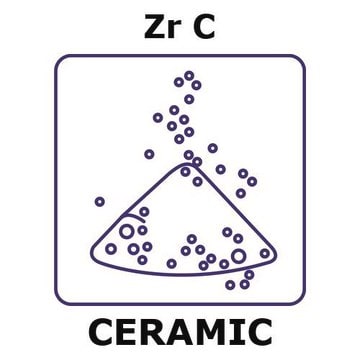594849
Titanium(IV) carbide
powder, <4 μm, ≥99% (Ti)
Synonym(s):
TiC-HP, Titanium monocarbide
Sign Into View Organizational & Contract Pricing
All Photos(3)
About This Item
Linear Formula:
TiC
CAS Number:
Molecular Weight:
59.88
EC Number:
MDL number:
UNSPSC Code:
12352300
PubChem Substance ID:
NACRES:
NA.23
Recommended Products
Quality Level
Assay
≥99% (Ti)
form
powder
particle size
<4 μm
bp
4820 °C (lit.)
mp
3140 °C (lit.)
density
4.930 g/mL at 25 °C (lit.)
SMILES string
[C-]#[Ti+]
InChI
1S/C.Ti/q-1;+1
InChI key
YXIVWSJCLXKLJL-UHFFFAOYSA-N
Looking for similar products? Visit Product Comparison Guide
Related Categories
Storage Class Code
11 - Combustible Solids
WGK
WGK 1
Personal Protective Equipment
dust mask type N95 (US), Eyeshields, Gloves
Choose from one of the most recent versions:
Already Own This Product?
Find documentation for the products that you have recently purchased in the Document Library.
Customers Also Viewed
T Henning et al.
Spectrochimica acta. Part A, Molecular and biomolecular spectroscopy, 57(4), 815-824 (2001-05-10)
We review the evidence for carbides in space both from infrared spectroscopy and direct measurements on presolar grains extracted from primitive meteorites. The paper includes a discussion of the structural properties of silicon carbide and metal carbides and their formation
Lingzhou Zhao et al.
Biomaterials, 31(32), 8341-8349 (2010-07-30)
Cell-repelling structures are often required in biosensors, bioelectronics, and drug delivery systems, but the search for satisfactory cell-repelling structures with good biocompatibility and long-term stability is challenging. In this work, two types of quasi-aligned nanowire arrays (QANWA) with different surface
Yuhe Zhu et al.
Dental materials journal, 26(2), 245-253 (2007-07-12)
Carbide layer was formed on the surface of Ti by heating in hydrocarbon atmosphere (benzene C6H6) at 1000-1400 degrees C using a high frequency induction heating method. Physical and mechanical properties of carbide-coated Ti were investigated to examine its potential
Jorge L Chávez et al.
Nanotechnology, 21(5), 055703-055703 (2009-12-22)
Hybrid organic-inorganic templates and core-shell nanoparticles were used as models to study the communication between fluorescent probes placed inside nanoparticles. The hybrid templates were prepared on the basis of a mixed-surfactant system using octadecyltrimethoxysilane as a reactive amphiphile. The core-shell
Marina Brama et al.
Biomaterials, 28(4), 595-608 (2006-10-20)
Titanium has limitations in its clinical performance in dental and orthopaedic applications. This study describes a coating process using pulsed laser deposition (PLD) technology to produce surfaces of titanium carbide (TiC) on titanium substrates and evaluates the biological response both
Our team of scientists has experience in all areas of research including Life Science, Material Science, Chemical Synthesis, Chromatography, Analytical and many others.
Contact Technical Service


